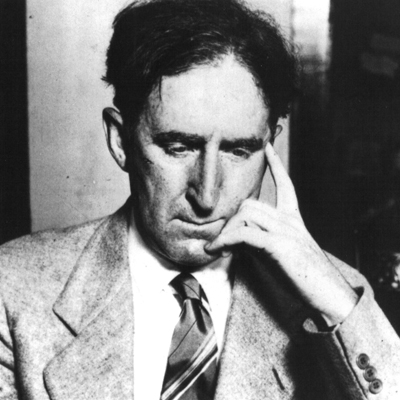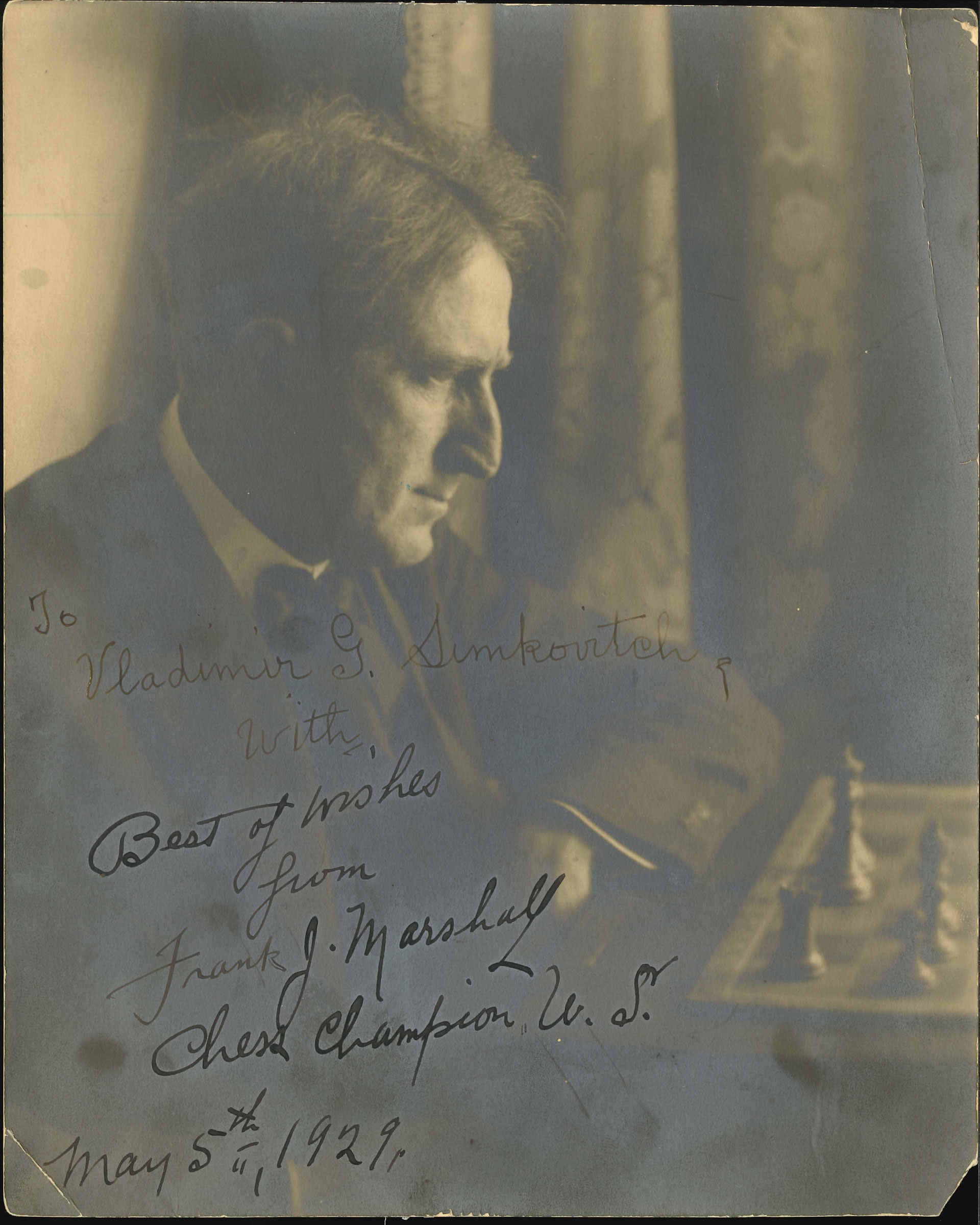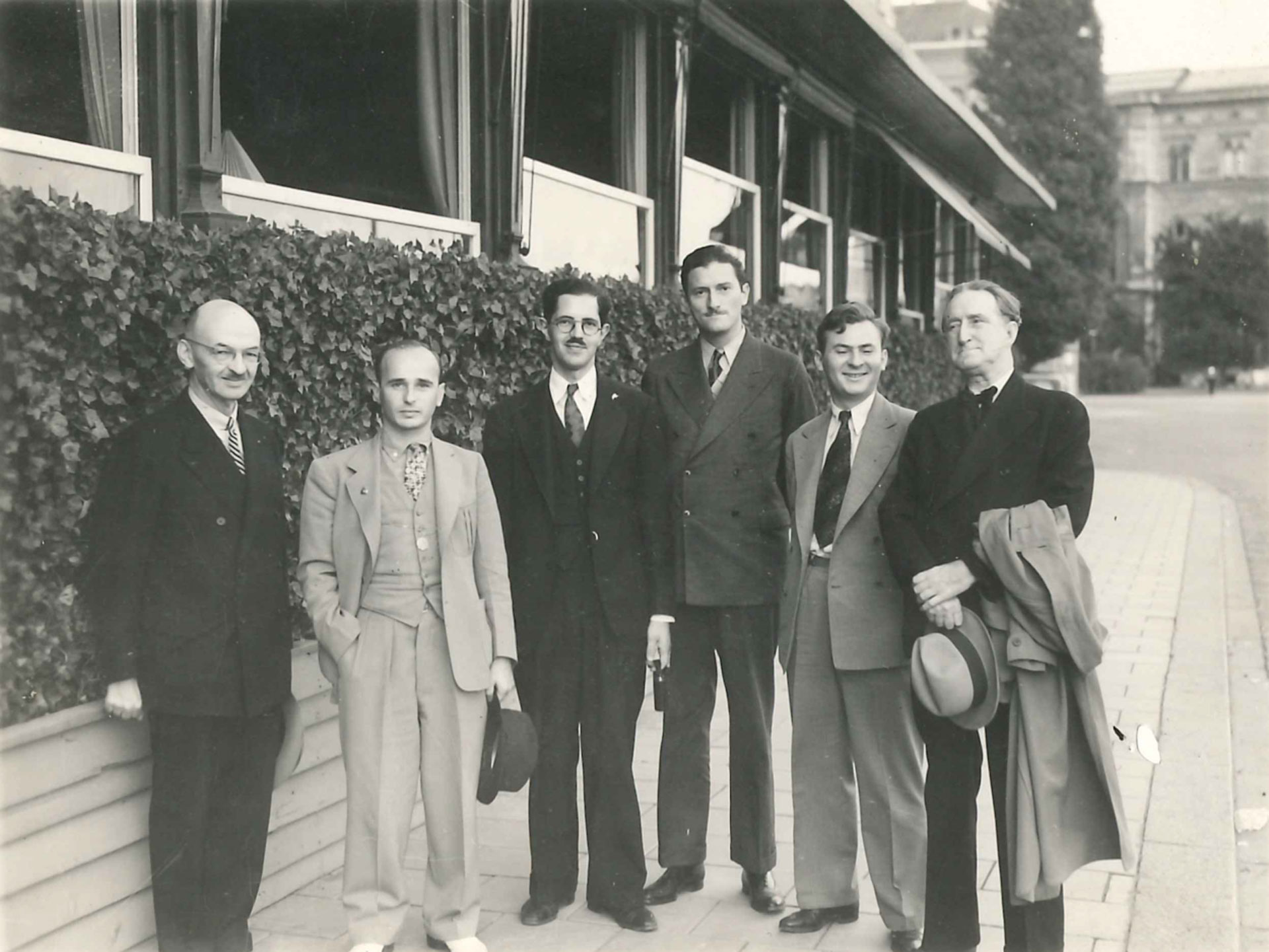 (1877-1944)
(1877-1944)
U.S. Chess
Hall of Fame
Inducted 1986
Frank Marshall enjoyed the longest and most untroubled reign of any U.S. Champion from the time he earned and accepted the title in 1909 until he resigned it in 1936. In 1909, he was defeated in a match by a young Jose Raul Capablanca. Recognizing the Cuban as a budding talent, Marshall aided him in his rise to fame by ensuring his entrance into the game’s highest-level tournaments. A successful international competitor, he finished fourth at San Sebastian 1911 and fifth at St. Petersburg 1914, both strong tournaments featuring the world’s top talent. He would also serve as captain of the four gold-medal U.S. Olympiad teams during the 1930s. In 1936, 27 years after accepting his national title, Marshall relinquished it to the winner of a championship tournament, the first champion under this new format being Samuel Reshevsky.
His memorable playing style was characterized by brilliant sacrifices and his legendary penchant for saving a lost position by an unexpected tactical twist. His autobiography, My Fifty Years of Chess, was published in 1942 and details his half-century of experience as a world-class chess player and champion. Marshall’s lasting legacy is the pivotal role he played in the development of American chess, providing a period of professional stability and establishing a practical center for the development of young chess talents.



